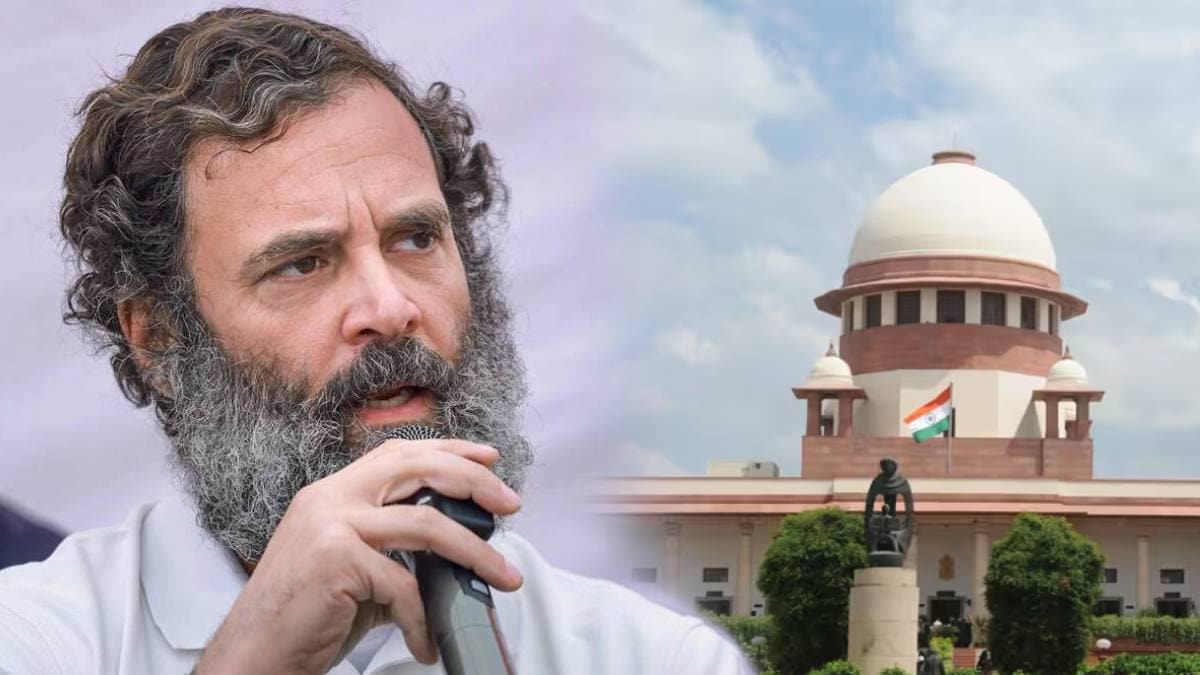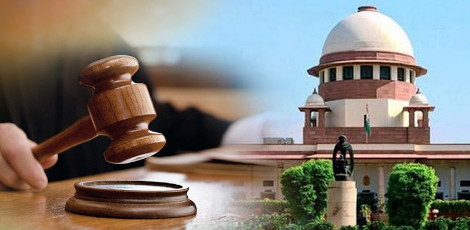In a significant turn of events, the Supreme Court has granted a momentous reprieve to Rahul Gandhi, a prominent leader of the Congress party, by suspending his conviction in a defamation case related to his remarks about the ‘Modi’ surname in 2019.

Source: NDTV
As a result of this decision, Rahul Gandhi’s status as a Member of Parliament, which was revoked upon his conviction, has now been reinstated, allowing him to regain eligibility to contest elections. The original conviction and subsequent disqualification occurred in March 2019 when a Surat court found him guilty and sentenced him to a two-year term, leading to his disqualification as a Lok Sabha MP representing the Wayanad seat in Kerala.
During the hearing, the Supreme Court highlighted a crucial aspect of the Surat court’s decision in Rahul Gandhi’s defamation case. The apex court expressed concern over the lack of reasons provided by the trial judge for imposing the maximum sentence on the Congress leader. In response to this oversight, a three-judge bench comprising Justices BR Gavai, PS Narasimha, and Sanjay Kumar asserted that the order of conviction should be stayed until a final adjudication is reached.
![Supreme Court Order: Rahul Gandhi Can Contest Polls, MP Status Reinstated 88 BREAKING: ['Modi-Thieves' Remark] Rahul Gandhi Moves Gujarat High Court Seeking Stay On Conviction In Defamation Case](https://www.livelaw.in/h-upload/2023/03/25/750x450_465230-rahul-gandhi-01.webp)
Source: LiveLaw
While acknowledging the merits of the case, the Supreme Court also made a pertinent observation regarding Rahul Gandhi’s conduct as a public figure. The court remarked that the Congress leader’s choice of words in his statement was deemed inappropriate, stating that individuals in public life are held to a higher standard and are expected to exercise prudence and discretion while delivering public speeches.

Source: Loksatta
The court specifically referred to a remark made by Rahul Gandhi during an election rally in Kolar, Karnataka, in April 2019, where he questioned, “How come all thieves have Modi as the common surname?” Despite reprimanding the manner of expression, the court’s decision to pause his conviction takes into account the complexities surrounding freedom of speech and the necessity to balance public accountability with the right to express one’s views.

Source: Live Chennai
Rahul Gandhi’s Conviction: Timeline of court Battle
Rahul Gandhi approached the Supreme Court after both the Surat sessions court and the Gujarat High Court declined to stay his conviction. During the recent hearing, the Supreme Court commented on the “very interesting read” and the “preaching” nature of the Gujarat High Court order.
On July 7, the Gujarat High Court rejected Rahul Gandhi’s petition, emphasizing the importance of “purity in politics.” The High Court found no reasonable grounds to pause the conviction, affirming the trial court’s order as “just, proper, and legal” and saw no need for interference. The court pointed out that disqualification extended beyond just MPs and MLAs, expressing concern over the impact of the petitioner’s statements on the reputation of the complainant, Purnesh Modi, and the Modi community.
The High Court regarded the present conviction as a serious matter that significantly affects a large segment of society and stressed the need for its gravity and significance to be duly recognized. Upholding the importance of integrity in politics, the court emphasized the necessity of preserving purity in the political arena.

Source: YouTube
“Satyamev Jayate”, says Congress
The Congress party expressed its appreciation for the Supreme Court’s order, seeing it as a reaffirmation of people’s trust in democracy, constitutionalism, and the principle that truth shall prevail. Congress MP Adhir Ranjan Chowdhury revealed that he had already met with Lok Sabha Speaker Om Birla and urged him to promptly reinstate Rahul Gandhi’s status as a Member of Parliament. This reinstatement would enable Rahul Gandhi to participate in the upcoming no-confidence motion proceedings scheduled for August 8 and 10.
“We have met the Lok Sabha Speaker and asked him that Rahul Gandhi’s membership must be restored so that he can take part in no-confidence motion proceedings,” the Congress leader stated. Chowdhury mentioned that the Speaker would make a decision once he receives a copy of the Supreme Court order.

Source: Business Today
Rahul Gandhi’s Plea in Supreme Court
On July 15, Congress leader Rahul Gandhi approached the Supreme Court to challenge the Gujarat High Court’s decision not to suspend his conviction in a defamation case related to his alleged remarks about the “Modi” surname. In his plea, Gandhi appealed to the top court to halt his conviction in the defamation case, emphasizing the exceptional nature of his situation due to the triviality of the offense and the irreparable harm caused by his disqualification as a lawmaker from the Wayanad constituency in Kerala.
Responding to his appeal, the Supreme Court requested input from petitioner Purnesh Modi and the Gujarat government on the matter. Gandhi expressed concerns that the High Court’s judgment on July 7, if not stayed, could stifle freedom of speech and expression.
The defamation case, which led to Rahul Gandhi’s conviction and a two-year jail sentence, stemmed from his remark about the ‘Modi’ surname, made during an election rally in Surat on March 23. Following his conviction, he was disqualified as a Lok Sabha MP, representing the Wayanad constituency in Kerala.
Also Read:
Rahul Gandhi’s Request to Pause Conviction Rejected by Surat Court



















































































